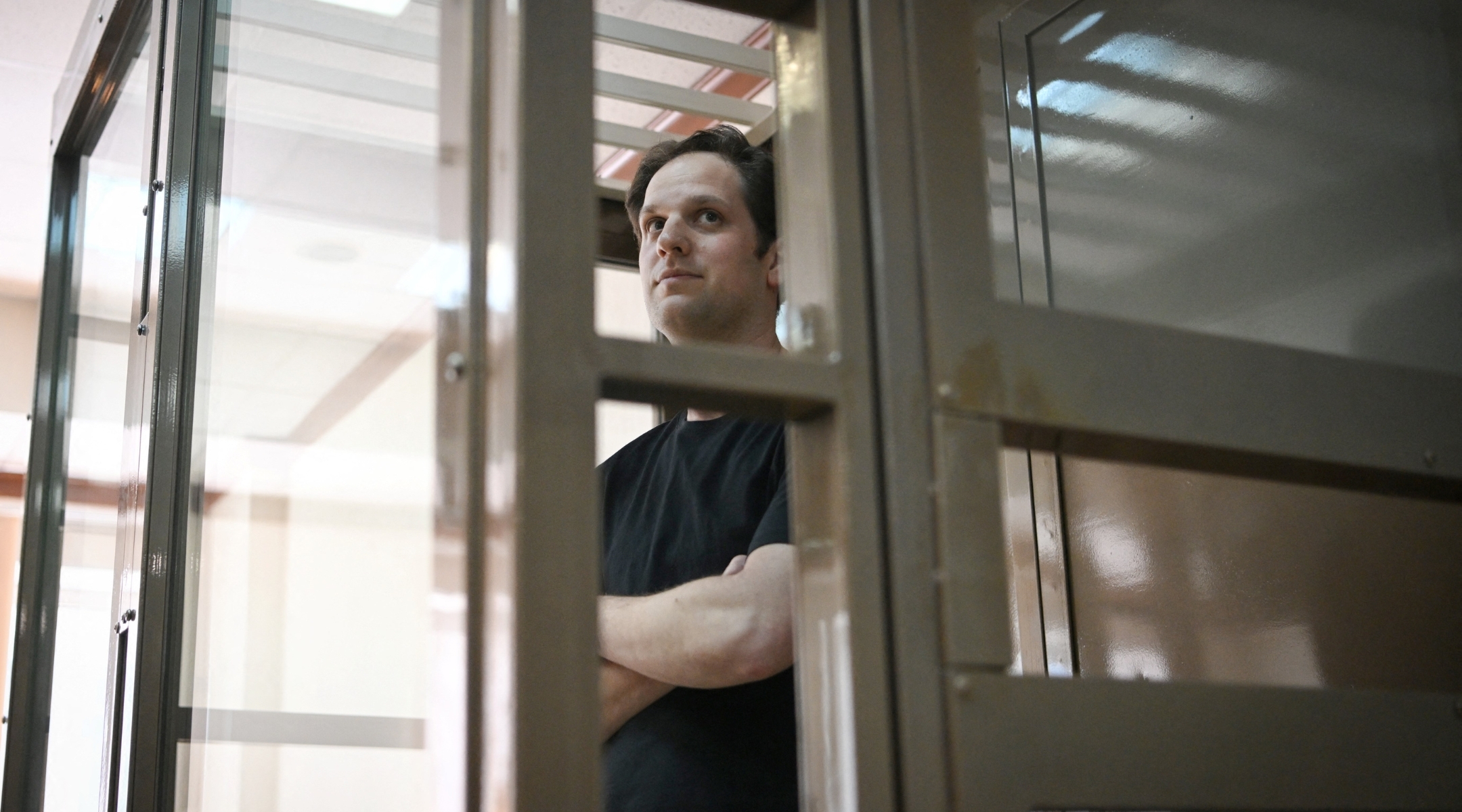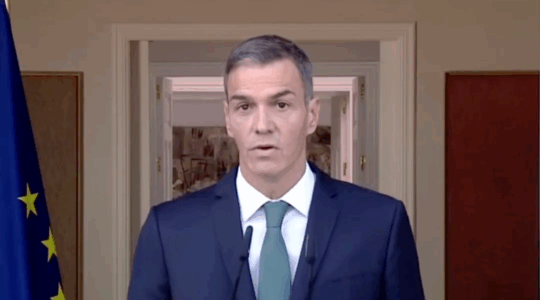(JTA) — The Kremlin has said for the first time that it has held discussions with U.S. officials regarding a possible prisoner exchange involving the Jewish American journalist Evan Gershkovich, who has been held in a Russian prison since March.
The U.S. ambassador to Russia visited Gershkovich on Monday, marking the first time a consular official has been able to meet with him since April. Meanwhile, Russian embassy officials met for the first time this week with Vladimir Dunaev, a Russian national jailed in the United States on cybercrime charges.
Asked to comment on whether the consular visits pointed to a future prisoner swap, Dmitry Peskov, press secretary for Russian president Vladimir Putin, suggested to reporters Tuesday that the possibility was open.
“We have said that there have been certain contacts on the subject, but we don’t want them to be discussed in public,” Peskov said. “They must be carried out and continue in complete silence.”
Gershkovich, a 31-year-old reporter at The Wall Street Journal, is the son of Jewish refugees from the Soviet Union. He was arrested by the Federal Security Service while on a reporting trip in Yekaterinburg on March 29 and is being held at Lefortovo prison on charges of espionage which he, The Wall Street Journal and the U.S. government deny. A Moscow court recently upheld a decision to extend his pretrial detention until at least Aug. 30.
“While we unfortunately do not have a breakthrough to share, we continue to pursue every avenue to secure the release of Evan Gershkovich and fellow American Paul Whelan,” a White House official said on Tuesday. The ambassador, Lynne Tracy, reported that Gershkovich appeared to be in good health and spirits during their meeting.
According to The Wall Street Journal, Russian officials have previously suggested the possibility of a deal, but any consideration for a swap involving Gershkovich would have to wait until after a verdict is reached in his case. But it could be many months before a trial is held, legal experts say. A prisoner swap has long been seen by American officials as the most plausible way of securing his freedom, as espionage trials in Russia are conducted in secret and it is rare for courts to acquit a defendant. If convicted, Gershkovich could face up to 20 years in a penal colony.
JTA has documented Jewish history in real-time for over a century. Keep our journalism strong by joining us in supporting independent, award-winning reporting.






